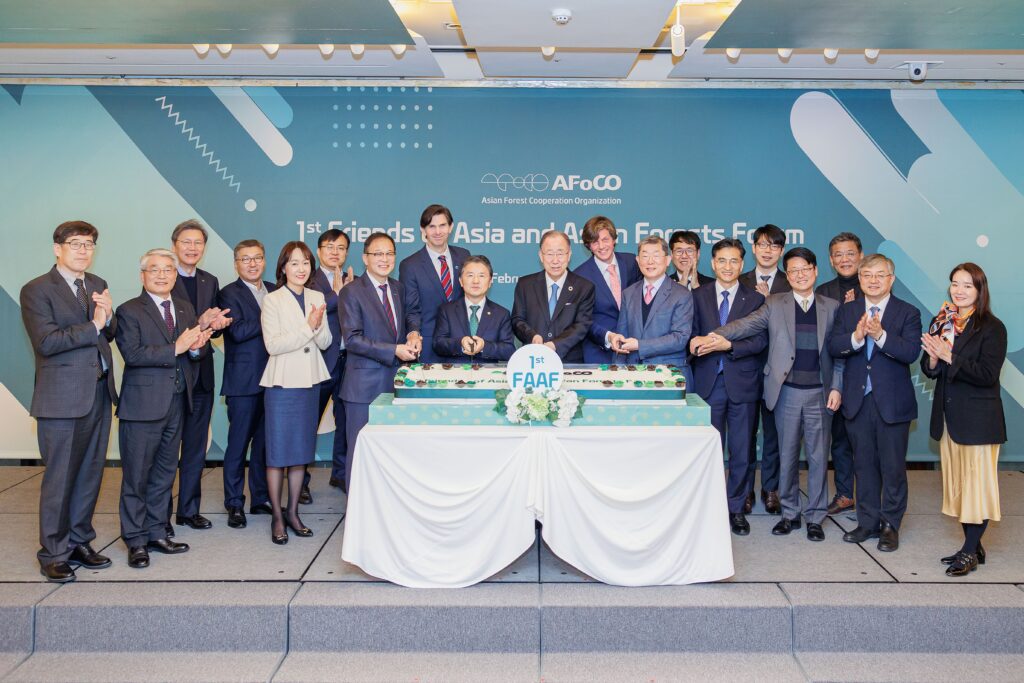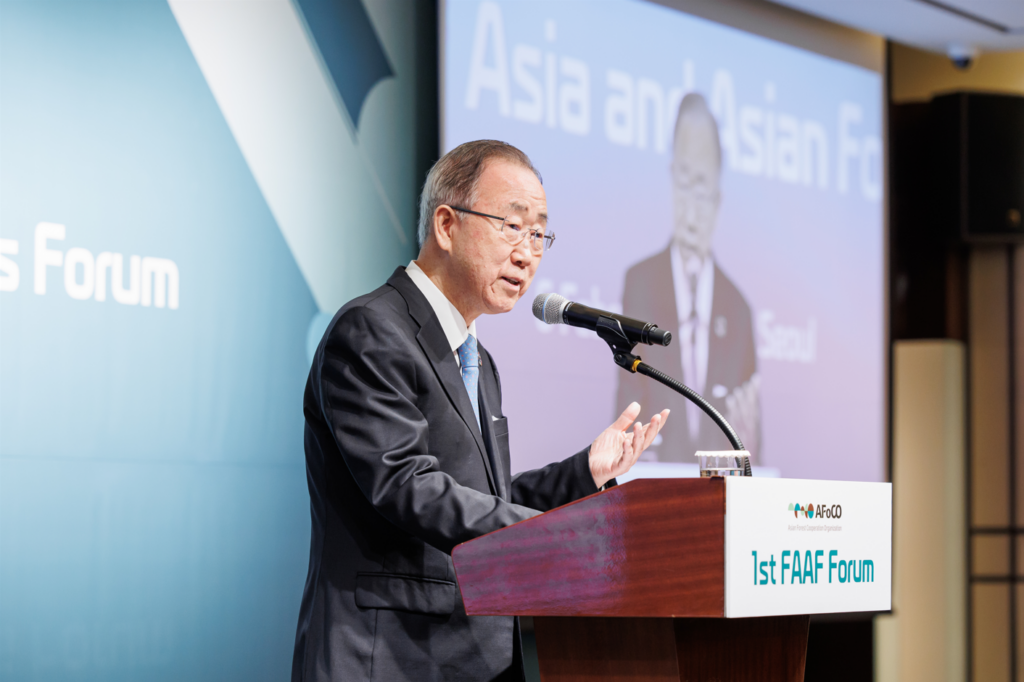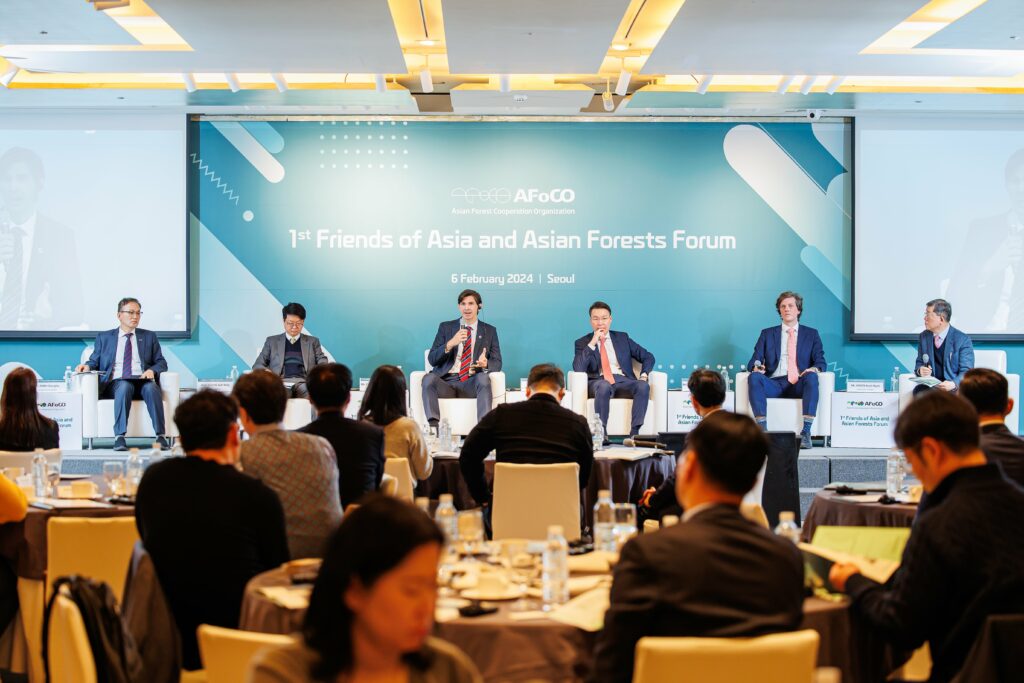February 6, 2024 — The Asia Forest Cooperation Organization (AFoCO) has made significant strides towards addressing climate change by engaging the private sector through the inauguration of the Friends of Asia and Asian Forests (FAAF). This collaborative platform for climate action convened its inaugural forum on February 6, bringing together corporations, and partner organizations from Korea to support the United Nations Sustainable Development Goals (SDGs) and to discuss climate solutions leveraging nature-based solutions with forests.
The 1st FAAF Forum witnessed participation from over seventy distinguished figures and corporate representatives, including Mr. Ban Ki-moon, the President and Chair of the Global Green Growth Institute (GGGI) and former Secretary-General of the United Nations (UN), as well as representatives from leading companies such as Yuhan-Kimberly, POSCO, Woori Bank, and NH Investment Securities. The event also saw engagement from the Federation of Korean Industries, the Korea Forest Service, the Korea International Cooperation Agency (KOICA), UN Global Compact Network Korea, the Presidential Commission on Carbon Neutrality and Green Growth, and the Korea Forestry Promotion Agency.


Mr. Ban highlighted the critical role of forests in carbon reduction, emphasizing their importance despite their less perceived allure compared to technological innovations and renewable energy sources. He advocated for active participation in FAAF to harness forest restoration as a key method in the fight against climate change.
Mr. Moon Kook Hyun (Co-chair of the FAAF), Dr. Nam Sung Hyun (Minister of the Korea Forest Service), Mr. Yoo Yeonchul (Executive Director of the UN Global Compact Network Korea), and Mr. Hong Seok-hwa (Vice President of KOICA) expressed their robust support for FAAF’s mission and future directions.
Dr. Nam extended his congratulations to FAAF on its launch and voiced his aspiration for a collaborative effort between the public and private sectors to discover climate solutions through Asian forest cooperation. Mr. Moon underscored the foundation of FAAF on AFoCO’s extensive network, encouraging companies to align their Environmental, Social, and Governance (ESG) strategies with FAAF’s objectives to achieve carbon neutrality.
The forum also featured presentations and discussions where Dr. Park Chong Ho, Executive Director of AFoCO, and other experts highlighted the efficacy of forest-based solutions in meeting decarbonization goals affordably and effectively. They stressed the need for immediate and intensified efforts to adhere to the Paris Agreement’s target of limiting global warming to 1.5 degrees Celsius by 2030. Dr. Park outlined a strategic direction focusing on three principles: elevating Asia’s climate leadership, reducing carbon emissions in Asia through forest carbon projects and Forest-based Solutions (FbS), and fostering shared value by integrating corporate ESG initiatives with national priorities.

Additionally, experts from academia and the private sector shared insights on the current state and potential for private sector involvement in climate action. The forum concluded with a commitment from AFoCO to facilitate the exchange of policies, trends, and practices related to climate change, biodiversity, and ESG through regular meetings. It also aims to promote forest sector activities, including forest carbon projects and planting initiatives, that align corporate interests with the developmental needs of Asian countries.

